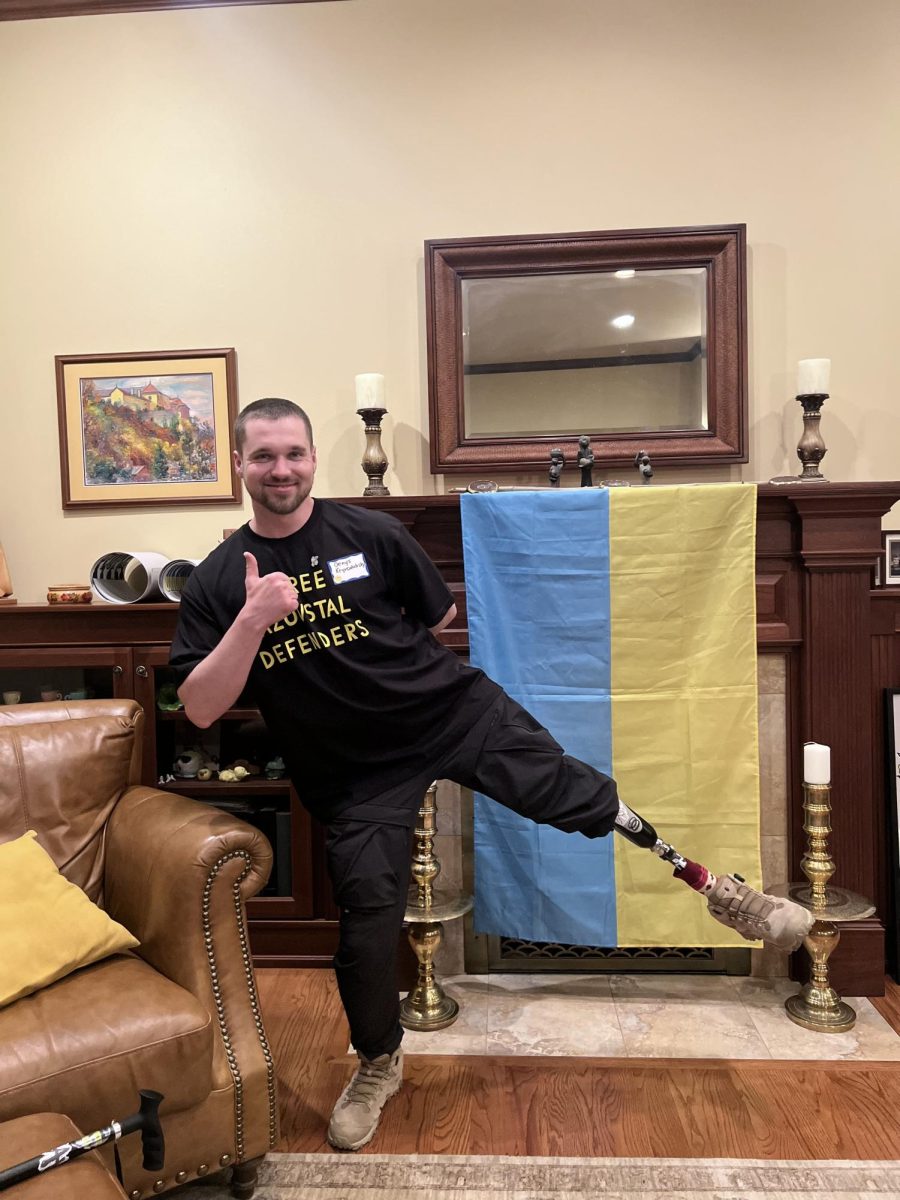Exactly 149 years after Alexander Graham Bell patented the telephone, Corvallis citizens gathered outside the Benton County Courthouse for Stand Up for Science, a protest concerned with federal cuts to science research.
Protesters, signs in hand, were joined by passing cars honking in support.
Stand Up for Science held protests at noon across the country on March 7, including in Newport, Eugene and Salem, in addition to the Corvallis protest. Heather Fischer, a senior researcher at the Oregon State University STEM Research Center, organized the Corvallis protest.
“I think somebody counted 112 people, which is a great turnout for such short notice,” Fischer said, after advertising the protest on the March for Science Corvallis Facebook page.
Fischer is a federally funded scientist, and expressed concern towards the privatization of scientific research.
“We need unbiased, federally funded research,” Fischer said.
Jack Barth, a professor of oceanography at OSU, was present at the protest. Barth said that one effort he was concerned would be affected was the construction of multiple 200-foot long ships dedicated to monitoring Oregon’s ocean, measuring low oxygen zones, acidification and invasive species.
“You can’t cut these things on a whim and derail these long term, super important projects,” Barth said.
Barth noted that federal funding cuts to oceanography, which according to him accounts for about a third of OSU’s research budget, could have a substantial impact on not only the marine ecosystem, but also food supply, recreation, local industry, and the promise of renewable energy.
Larry Weymouth, a retired grant and contract officer for OSU’s Research Office, expressed a similar concern for the stability of oceanography research being done at OSU.
“There’s such valuable research OSU does that students and the public don’t realize,” Weymouth said in reference to research concerning the effects of climate change, with rising ocean temperatures and acidification affecting coral reefs. Weymouth also expressed concern for cuts to funding for the National Science Foundation and National Institutes of Health.
Fischer said that OSU students unaware of the impact of federal cuts to research should make an effort to get informed and get involved because, according to Fischer, cuts to federally funded research will affect them if it hasn’t already.
“All of the people who work on campus rely on federal funding. Once this dries up, students will be affected,” Fischer said.
Sylvia Yamada, a marine biologist studying the arrival and spread of invasive crab species, said that the future of scientific research was in jeopardy.
“I feel strongly about young people who are coming into the field and are being fired. That’s our future,” Yamada said.
Those interested can find March for Science Corvallis on Facebook, as well as 500 Women Scientists, an organization that was also present at the protest.
Further protests are planned weekly on Wednesdays from 5 p.m. to 6 p.m. at the Benton County Courthouse.



















































































![Newspaper clipping from February 25, 1970 in the Daily Barometer showing an article written by Bob Allen, past Barometer Editor. This article was written to spotlight both the student body’s lack of participation with student government at the time in conjunction with their class representatives response. [It’s important to note ASOSU was not structured identically to today’s standards, likely having a president on behalf of each class work together as one entity as opposed to one president representing all classes.]](https://dailybaro.orangemedianetwork.com/wp-content/uploads/2025/03/Screenshot-2025-03-12-1.00.42-PM-e1741811160853.png)

























